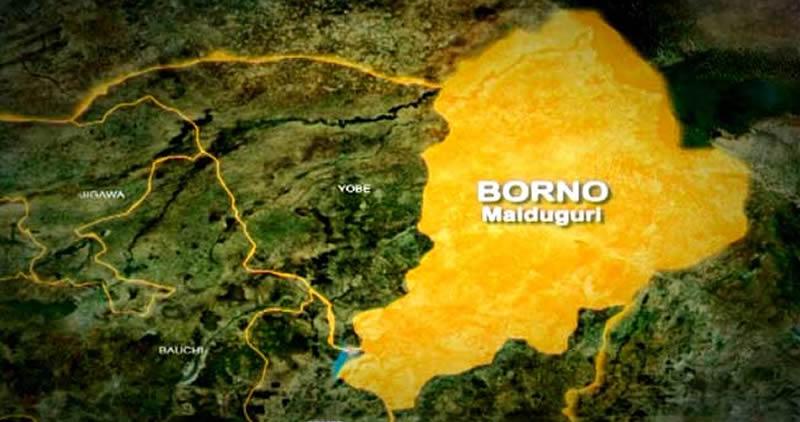A fresh wave of tension has no doubt erupted between the Nigerian federal government and Borno State Governor Babagana Zulum over the escalating security crisis in the Northeast.
While Abuja maintains that progress is being made in counterterrorism efforts, Zulum paints a sorrowful picture one of deteriorating security, abandoned communities, and a looming return to chaos.
In a bold statement, Governor Zulum warned that Borno State is “losing ground” to insurgents, citing recent Boko Haram offensives that overran military bases in Wajirko, Sabon Gari (Damboa LGA), Wulgo (Gamboru Ngala), and Izge (Gwoza LGA).
According to Zulum, these attacks are not isolated, but part of a broader pattern of unchecked violence. “There are daily kidnappings and assaults occurring without confrontation from security forces,” he said.
The governor’s comments, as observed by The Trumpet, have ignited a rare public dispute with the federal government, which swiftly dismissed the claims.
Minister of Information Mohammed Idris urged citizens to “disregard alarmist statements,” asserting that Nigerian security agencies have made “significant strides” in restoring peace, especially in the Northeast.
But Zulum, long known for his field based governance style and firsthand experience in conflict zones, insists otherwise. He has called on the federal government to deploy advanced military technology, including drones and attack helicopters, particularly in the Sahelian regions bordering Chad, Niger, and Cameroon. “We cannot proceed with our resettlement plans while these areas remain vulnerable to insurgents,” he emphasized.
Security analysts and stakeholders suggest that the disagreement between Zulum and the federal government reflects deeper, systemic challenges in Nigeria’s counterinsurgency approach.
Retired Brigadier General Peter Aro lent credence to Zulum’s warnings, noting that while urban centers appear stable, rural communities like Bama, Gwoza, and Marte remain vulnerable.
He also criticized the reintegration of so-called “repentant” insurgents without proper accountability, calling it a “serious policy flaw.”
Traditional leaders echoed these concerns. The Shehu of Borno, one of the state’s most influential monarchs, confirmed that three local government areas, Guzamala, Marte, and Abadam, as well as parts of Mobbar remain effectively under insurgent control. “There is no governance, no infrastructure, and no security presence,” he said.
Read also: Zulum, Shehu of Borno raise alarm over renewed Boko Haram attacks
Terrorists invade security post, kill soldier, police in Borno
Senate summons top security chiefs over alleged USAID funding of Boko Haram
The regional security situation is also being shaped by factors beyond Nigeria’s borders. Niger’s withdrawal from the Multinational Joint Task Force (MNJTF) has reportedly weakened collaborative efforts to combat Boko Haram and ISWAP, allowing insurgents greater mobility across porous frontiers.
At the same time, the Nigerian military appears overstretched, with forces redeployed to combat rising banditry in the Northwest and herder-farmer clashes in the Middle Belt. This diffusion of resources has left gaps in the Northeast, experts say.
Some analysts, including retired Brig. Gen. Bashir Adewinbi, suggest that the resurgence of attacks may also carry political undertones, potentially aimed at eroding public confidence in President Tinubu’s administration.
Amnesty International has weighed in, harshly criticizing the federal government’s handling of security not only in Borno but across other flashpoints like Plateau, Kebbi, and Katsina states. The rights group has called for a comprehensive review of civilian protection measures and greater accountability for state security forces.
The conflicting narratives of Zulum’s ground-level urgency versus the federal government’s institutional optimism highlight a critical disconnect in Nigeria’s security architecture. While Abuja projects stability, local leaders warn of simmering dangers that could undo years of hard-won progress.
As calls grow louder for technological investment, regional cooperation, and root-cause solutions to insurgency, the question remains: Can Nigeria bridge the gap between perception and reality before the Northeast descends further into chaos?
